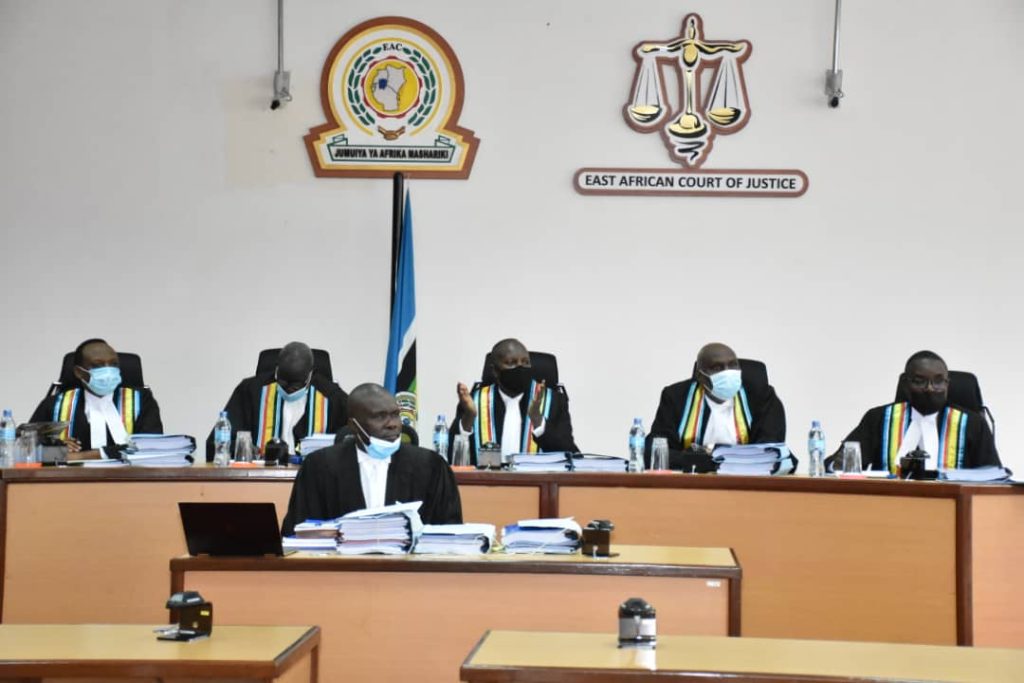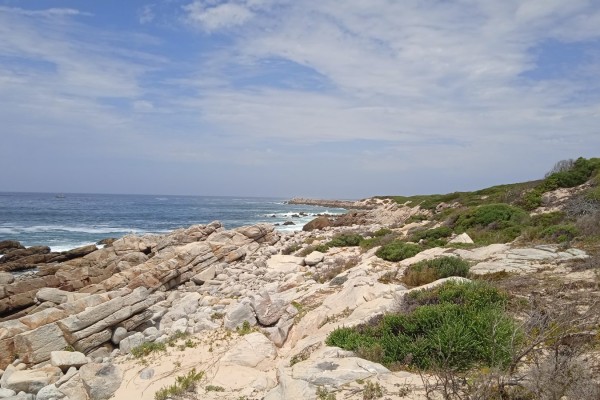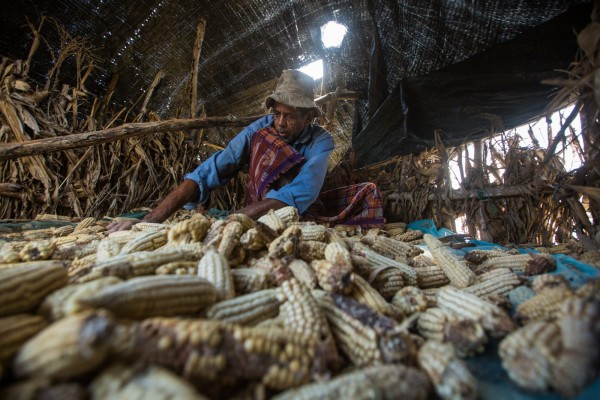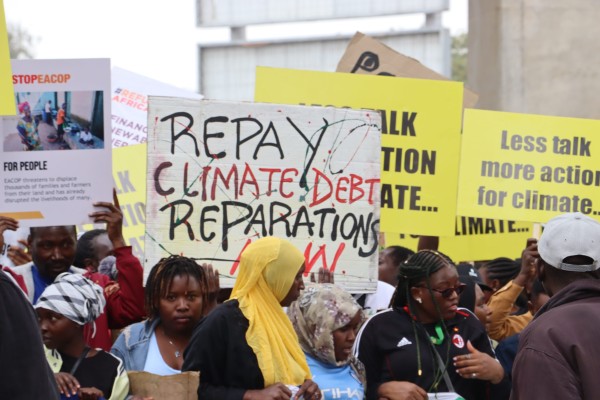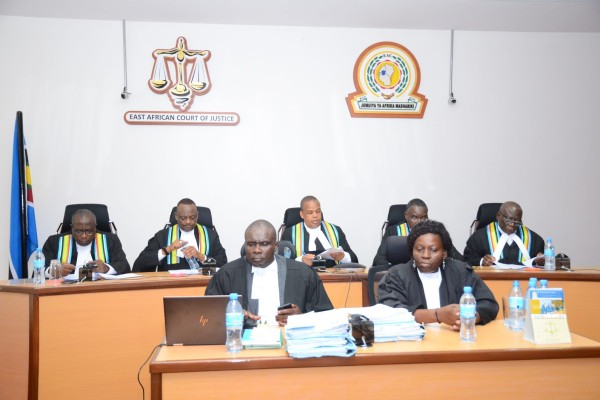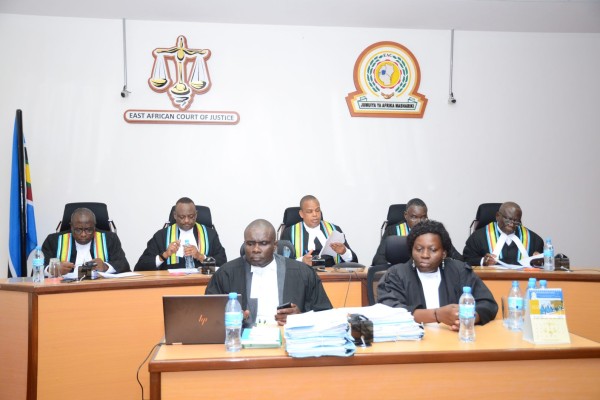FOR IMMEDIATE RELEASE
KAMPALA, NAIROBI & ZANZIBAR
The East African Court of Justice (EACJ) will tomorrow, November 29, 2023, deliver its ruling on the preliminary objections raised by Tanzania’s solicitor general regarding the court’s jurisdiction to hear a case against the East Africa Crude Oil Pipeline (EACOP) project.
The case was filed by Center for Strategic Litigation (CSL), Center for Food and Adequate Living Rights (CEFROHT), Africa Institute for Energy Governance (AFIEGO) and Natural Justice against the governments of Tanzania and Uganda as well as the Secretary General of the East Africa Community (EAC) in November 2020.
In their suit, reference number 39 of 2020, the organisations argue that:
- Signing of the Host Government Agreements (HGAs) by the governments of Uganda and Tanzania for the development of the EACOP through protected areas, with adverse impacts on livelihoods, biodiversity, climate and socio-economic aspects, violates provisions of the EAC Treaty. The HGAs were initiated in 2020 and signed in 2021 by the governments of Uganda and Tanzania as well as the EACOP project developers.
- Signing of the HGAs and intergovernmental agreement (IGA) between Uganda and Tanzania before the approval of the Ugandan EACOP Environmental and Social Impact Assessment (ESIA) report is a violation of the EAC Treaty. The IGA was signed in 2017 between the governments of Uganda and Tanzania. The EACOP Ugandan ESIA report was approved in 2020.
- Signing of the HGA by Uganda and Tanzania without notification of, submission to and approval of the EACOP ESIA by the EAC Secretary General and Council of Ministers violated provisions of the EAC law.
- The EACOP project proponents, comprising TotalEnergies, a French oil giant, China National Offshore Oil Corporation (CNOOC), as well as the states of Uganda and Tanzania, did not conduct effective and meaningful public participation and consultation, and neither did they conduct both human rights and climate impact assessments before signing of key EACOP agreements.
The organisations argue that the above actions by the Ugandan and Tanzanian governments violated critical provisions in the EAC Treaty, Protocol for sustainable development of the Lake
Victoria Basin, the African Charter on Human and Peoples’ Rights and the African Convention on the Conservation of Natural Resources as well as Uganda’s constitution and environmental laws.
The organisations also argue that the EACOP violates the Convention on Biological Diversity and United Nations Framework Convention on Climate Change.
Following several hearings of the case at the EACJ, in March 2022, Mr. Gabriel Malata, the Solicitor General of the United Republic of Tanzania raised a preliminary objection through which he argued that the EACJ has no jurisdiction to hear both the main case and the application for temporary injunction filed by the aforementioned East African organisations. He also raised other objections.
On November 29, 2023 therefore, the EACJ will address the parties to the case on three key preliminary issues including:
- Whether the case raises matters for interpretation of the EAC Treaty;
- Whether the case was filed within the required timeframe; and
- Whether the organisations’ pleadings were properly verified in accordance with the EACJ Rules of Procedure, among others.
The legal challenge seeks to ensure that the project aligns with environmental regulations, mitigates potential ecological risks, protects community rights, and upholds international standards for sustainable development.
In the event that the EACJ upholds the preliminary objection on its jurisdiction, the case will face dismissal. However, if the court determines that it has jurisdiction, the matter will proceed to a comprehensive hearing on its merits.
The organisations that filed the case as well as oil project-affected communities in Uganda and Tanzania remain optimistic that the ruling will be just and fair to all parties.
For further inquiries, contact:
- Africa Institute for Energy Governance: dnabiruma@afiego.org
- Center for Strategic Litigation: odur@strategiclawcentre.org
- Center for Food and Adequate Living Rights: lubega@cefroht.org
- Natural Justice: salome@naturaljustice.org

